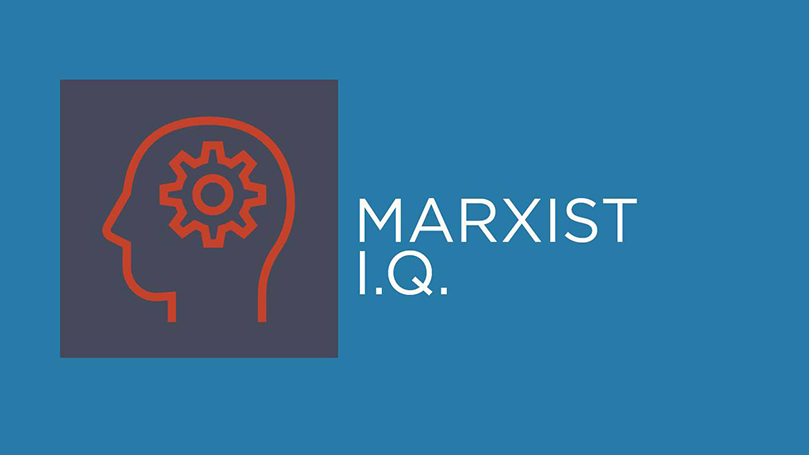
This Marxist IQ is in celebration of the 107th anniversary of the Bolshevik–led revolution in Russia, which ultimately established the Soviet Union. On October 24–25, according to the Julian Calendar (which was used in Russia at that time), and on November 6–7, according to the calendar used in Europe and the U.S. today, these Marxist organizers led a mass, initially peaceful revolution which took power and embarked on the international working-class’ first longstanding experiment in building socialism. Key to this victory was their application of the theories, strategies, and tactics developed by their comrade, Vladimir Lenin.
1. Marxists today see imperialism as
a. having ended with the conclusion of the Cold War and the triumph of globalization.
b. being centered in Russia and opposed by the U.S. and its NATO allies.
c. resulting in deepening and multiple crises of poverty, racist oppression, environmental destruction, and proxy wars.
d. actively opposed by Donald Trump.
2. In his analysis of imperialism, which he called “ultra-imperialism,” Karl Kautsky disagreed with V. I. Lenin in that he
a. supported guerilla wars to fight imperialism.
b. saw imperialism as a positive force.
c. believed that imperialist powers could cooperate to divide the world short of war and revolution.
d. saw imperialism as the highest stage of capitalism.
3. In his pamphlet Imperialism: The Highest Stage of Capitalism, Lenin presented modern imperialism as a result of
a. the merger of industrial and bank capital to create finance or monopoly capital.
b. the export of capital itself to less developed countries, as opposed to just the export of goods, for the purpose of increasing profits.
c. the formation of international monopolies and rival alliances of nations to divide and redivide the world, leading to war and revolution.
d. All of the above
4. Applying his theory of imperialism to Czarist Russia in 1917, Lenin saw
a. Russia fighting in WWI in order to defend Slavic peoples from Germany.
b. Russia on the eve of a great capitalist revolution, thanks to its defeats in the war.
c. Russia as the weak link among the imperialist powers fighting the war, whose democratic revolution would have to be transformed rapidly into a socialist revolution if it were to survive.
d. support for Germany and its allies as the way for revolutionaries to defeat Russian, British, and French imperialism.
5. Which of the following was not among Lenin’s theoretical contributions to Marxism and do not form part of the foundation of Marxism-Leninism?
a. The need for a new kind of party, the Communist Party, to move the working class and people’s movement beyond the struggle for reforms
b. His defense of Marx and Engels’ argument that the working-class must take power and create a new kind of state in order to build socialism
c. The linking of the struggle for democracy and the struggle for socialism, expanding Marx’ slogan “Workers of the world, unite!” to “Workers and oppressed peoples of the world, unite!”
d. His analysis of imperialism as a stage of capitalism — monopoly capitalism — and its degeneration into great wars and revolutions
e. The establishment of the world’s first socialist state as the model for all socialist countries that had to be supported in all of its domestic policies and foreign policies
f. His development of Marxist strategy and tactics
Answers here.


 Join Now
Join Now